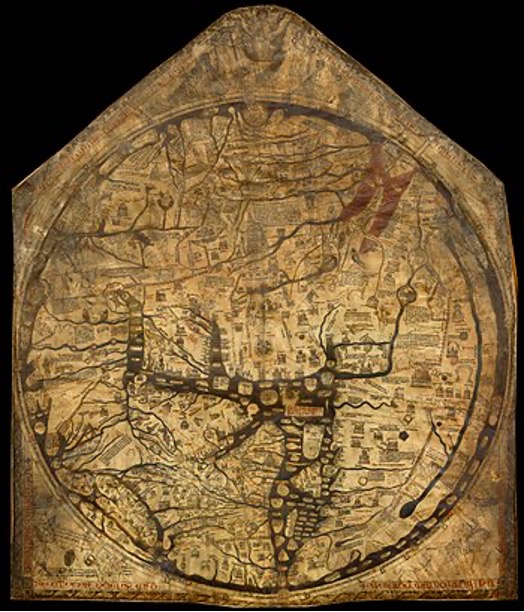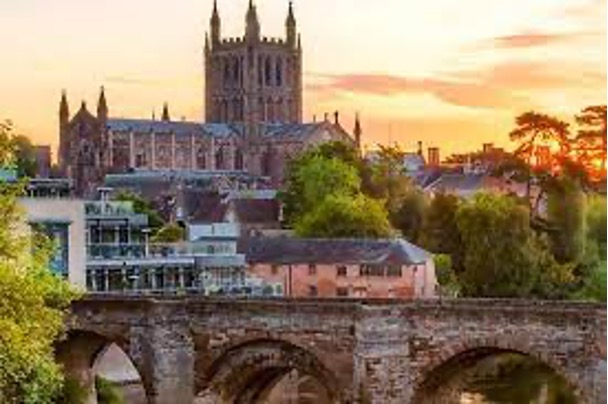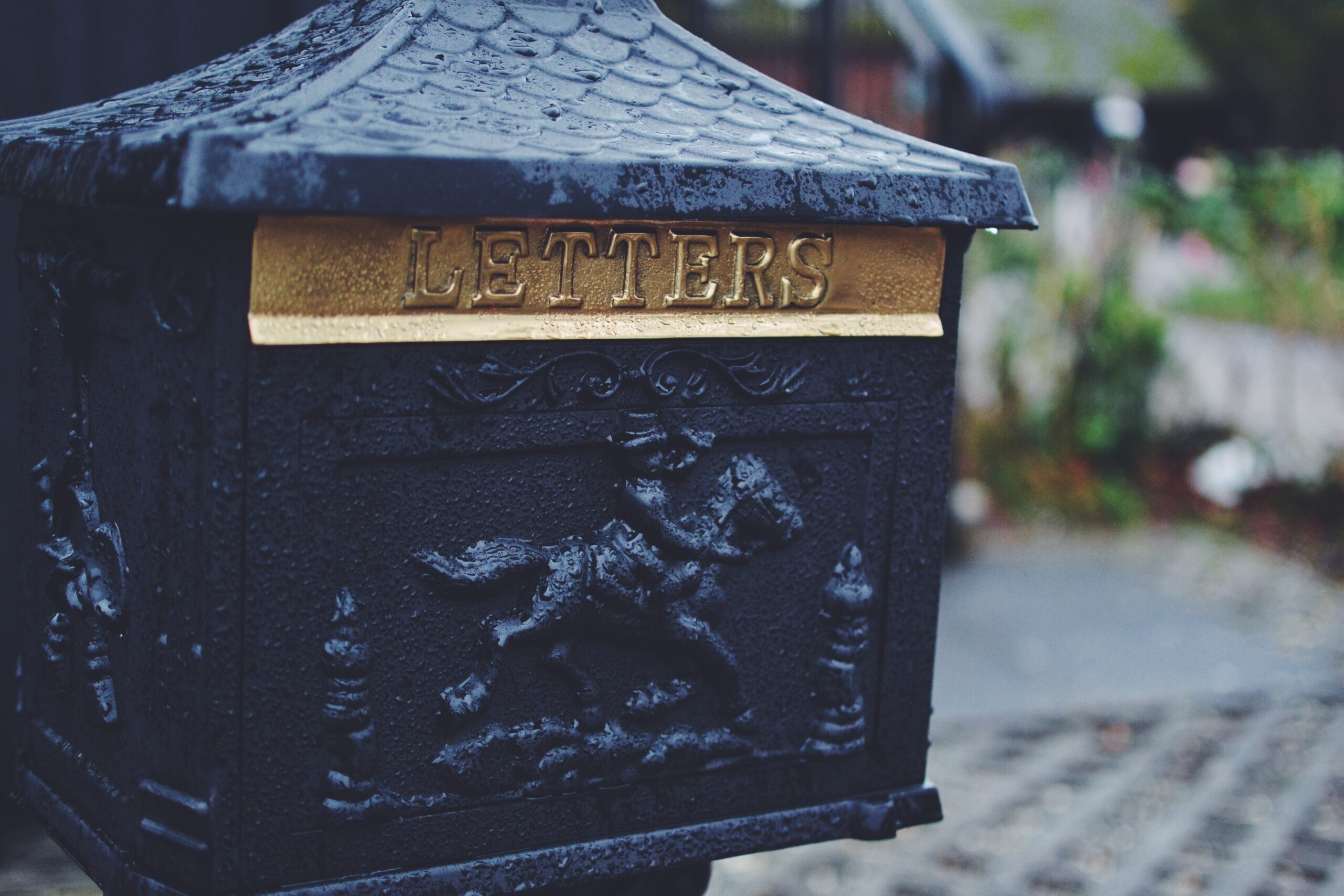April 6th, 2022.
As the Covid restrictions are being removed and life returns to a semblance of normality it was time for another day out. It was a beautiful spring day, a clear blue sky and 15°C when I hit the road. The prospect of a 200-mile drive up the main motorway between the south-west and civilisation didn’t fill me with joy but thankfully it was relatively free from holidaymakers, so it was a smooth run.
I reached Bristol and made my way across the impressive Severn Bridge.


This is where the UK excels. As soon as I entered Wales, I became subject to different Covid restrictions, but luckily I didn’t stop until I re-entered England. I planned to overnight in Hereford, a little known city with a marvellous cathedral and one of the oldest maps in the world – the Mappa Mundi. Hereford’s map dates to about 1300 and is drawn on vellum. It is the largest medieval map in existence, about 30 cm in diameter.
It is well worth a look, depicting not just geography but recording 15 Biblical events, 33 animals and plants, 32 people, and five scenes from classical mythology.
Overnight was near Credenhill, which was quieter than usual. The locals always notice this because it is the HQ of the UK SAS and a quiet village is a bellwether indicator that something is in the air.

The next day was a typical Friday train journey to Stockport. Three coaches in a rattle trap diesel set with no first class, no travelling buffet and standing room only. This wasn’t too bad for me as I was on for two hours, but it was a through train from Cardiff to Manchester which is about a 3 hours 30 minutes trip and is a useful service for the students returning home for the weekend. This journey, compared to my trip to Exeter a few weeks ago, displayed the good and the bad of the UK rail services. The Exeter service was superb, this one was disgusting.

A quick meeting in Stockport and then back to Hereford. During the Covid restrictions, I became used to Zoom meetings and if the train journeys get worse then Zoom will become more attractive.

Travelling home from Hereford I made a diversion to Ross on Wye, which is a quaint old small town on the edge of the Forest of Dean and on the banks of the river Wye.
As it was still spring, I made a small detour on the way home from Ross. It was the daffodil season in Dymock, and the woods and fields were full of wild daffodils.
Dymock church is a good base for the daffodil walks and provides wonderful cream teas to refresh you at the end of the circular promenade.

Dymock is also famous for being the home of the Dymock poets. Dymock poets (act. 1913–1915), were the six writers—Lascelles Abercrombie, Rupert Brooke, John Drinkwater, Wilfrid Gibson, Edward Thomas, and the American Robert Frost (1874–1963)—associated with the village of Dymock, between Ross-on-Wye and Ledbury on the Gloucestershire–Herefordshire border, in the period immediately before and after the outbreak of the First World War.
It is thought that Dymock influenced part of Brooke’s poem “The Soldier”. That Dymock was a place of ‘laughter, learnt of friends; and gentleness, / In hearts at peace, under an English heaven’ is confirmed by his stay with Wilfrid Gibson. On 6 July 1914 Brooke wrote, ‘I’ve stayed two days with Gibson’, who was ‘still in a Heaven of delight’ and commented on his love of Abercrombie’s cottage ‘where one drinks great mugs of cider, & looks at fields of poppies in the corn’.
After all this, the final leg home was an anti-climax of 3 hours, 200 miles of boring motorway. At least it wasn’t full of tourists as that season will start in earnest at Easter when the journey could have taken upwards of 5 hours.

